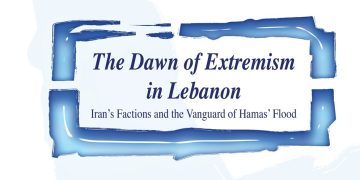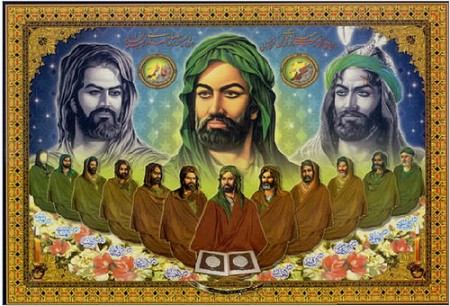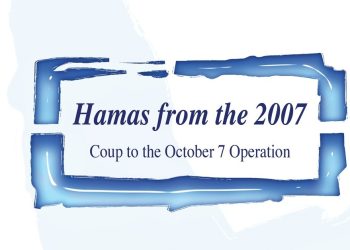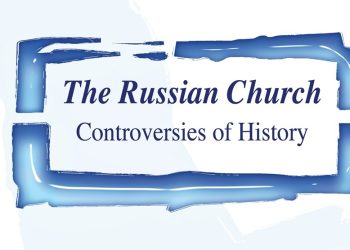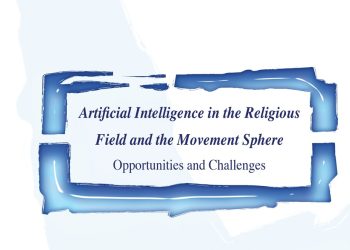After the Islamic conquest of the Persian Empire, many Persians converted to Islam and, over time, came to embrace its tenets. An outsize number became prominent scholars and eventually drivers in all fields of Islamic knowledge, including theology, philosophy, fiqh, hadith. The phenomenon of Shi’ism came to Iran during the Umayyad period — but the ascent of Shi’ism as the dominant sect in the country did not come until the Safavid dynasty, which took power in the early sixteenth century, made it the official religion of the state and propagated it throughout Iran. The dynasty’s founder, Shah Isma’il Safavi, asked Arab Shi’i clerics of Jabal Amel in Lebanon, Iraq, and Bahrain to come to Iran to teach Shi’ism. Safavids eventually introduced forced conversion, at times on pain of death. This aggressive campaign to homogenize the population as Shi’ites may be understood partly as a component of the Safavids’ political rivalry with the Ottoman empire, which used Sunnism as leverage for its hegemony.
Though Iran remains a mosaic of ethnicities and religions, the Twelver Shi’i sect has since become a core component of the dominant political identity, alongside a deeply ingrained feeling of Persian nationalism.
Following the Islamic revolution of Iran in 1979, the Iranian Islamic Republic adopted a new constitution based on Islamic Sharia and the concept of “Velayat-e Faqih” — the “rule of the jurist.” The Supreme Leader serves as the reigning representative of the infallible Imam, now in hiding, who will one day return to bring order and justice to the world. The founder of the Iranian Islamic Republic, Imam Khomeini, justified this innovation as follows: “There is absolutely a need for appointing someone who can handle the Ummah’s affairs and maintain stability and security during the Occultation by following Islamic laws. This cannot be done without a supreme guardian for Muslims all over the Islamic world.”
Khomeini dismissed the virtue of Taqiyya (dissimulation) and waiting for the emergence of Imam Mahdi, averring the weakness of prophetic traditions counseling as much. He said, “The necessity of implementing laws was not limited to the Prophet Mohammad. Islam is not confined to one time or place; it is a boundless necessity which must be fulfilled forever. What is allowed by the Prophet Mohammad is allowed forever. What is prohibited by the Prophet Mohammad is prohibited forever. It is not permissible to disobey the principles of Islam, neglect its teachings, abandon Islamic ‘Punishment,’ stop collecting taxes, or simply leave the Islamic nation defenseless. And the belief that Islam has come for a limited time or a discrete space is contrary to the necessities of Islamic belief. Since implementing the laws and teachings of the Prophet Mohammad is an eternal necessity, having an executive and administrative government is essential. If we don’t do this, complete chaos and corruption can spread adversarially, and immorality and doctrinal deviation will plague the Islamic nation.”
Khomeini argued that establishing government is also necessary because because the occultation of the Shi’i twelfth Imam, which dates back a very long time, may continue for centuries, and Islamic laws should not be suspended during his absence. In the meantime, he said, the “faqih” (Islamic jurics) must take on the leadership of the government. He cited a range of prophetic traditions as supporting this approach. He asserted that the authority of the jurist is divinely ordained and on par with that of the prophet Muhammad and all twelve Imams.
But many Iranian and other Shi’i “Marja’s” (human sources of juridical authority), together with other scholars, reject Khomeini’s theory. They include the late, venerated Marjas Mohsen Al-Hakim and Imam al-Khouei, as well as Iraq’s ranking Marja today, Ayatollah Ali al-Sistani. They believe that the authority of the jurist should be limited to matters of faith and religious practice and should not literally govern the nation. The late Lebanese Shi’i scholar and cleric Muhammad Mahdi Shamsheddin, for his part, developed an alternative theory, also popular among some Iranians: There is indeed a divine custodianship, but it is in the hands of the nation as a whole rather than a single person, even if he is an Islamic jurist.



